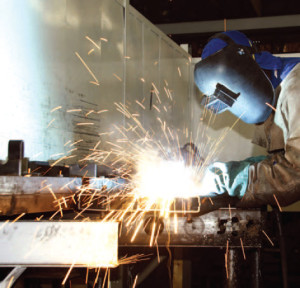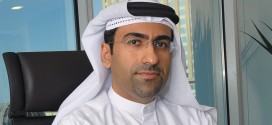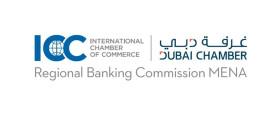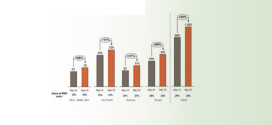 The Middle East’s aluminium industry is in an advantageous position, and can play a key role in industry consolidation and the development of new globally active players, says a new report by the Boston Consulting Group (BCG).
The Middle East’s aluminium industry is in an advantageous position, and can play a key role in industry consolidation and the development of new globally active players, says a new report by the Boston Consulting Group (BCG).
It explains that the Middle East’s strategic position is illustrated by the recent $15bn merger of Dubai Aluminium (Dubal) and Emirates Aluminium (Emal) to create Emirates Global Aluminium, the world’s fifth-largest aluminium producer.
“The GCC aluminium market’s cost advantage is supported by its proximity to Europe, Asia and Africa and growing aluminium demand from the construction, packaging, transportation and industrial sectors,” says the report. “We are seeing local players make strategic movements both upstream and downstream as they build viable value chains and further aluminium-driven manufacturing.”
“To become profitable and generate attractive returns for their shareholders in this environment, aluminium companies must adopt a more aggressive approach to confronting the industry’s challenges,” said Knut Olav Rød, a BCG partner and co-author of the report. “We believe this more aggressive approach must be implemented at the industry level as well as the company level. The scale of the problem is too daunting to be resolved by individual companies acting independently.”
The report also advises individual companies to explore upstream opportunities in bauxite and alumina and focus on high-value or lowest-cost downstream businesses. It also recommends that companies substantially raise their game in three critical dimensions of business performance: operating and overhead costs, management of large-capex projects and commercial activities.
 Cash And Trade Magazine For Cash and Trade professionals in the Middle East
Cash And Trade Magazine For Cash and Trade professionals in the Middle East




